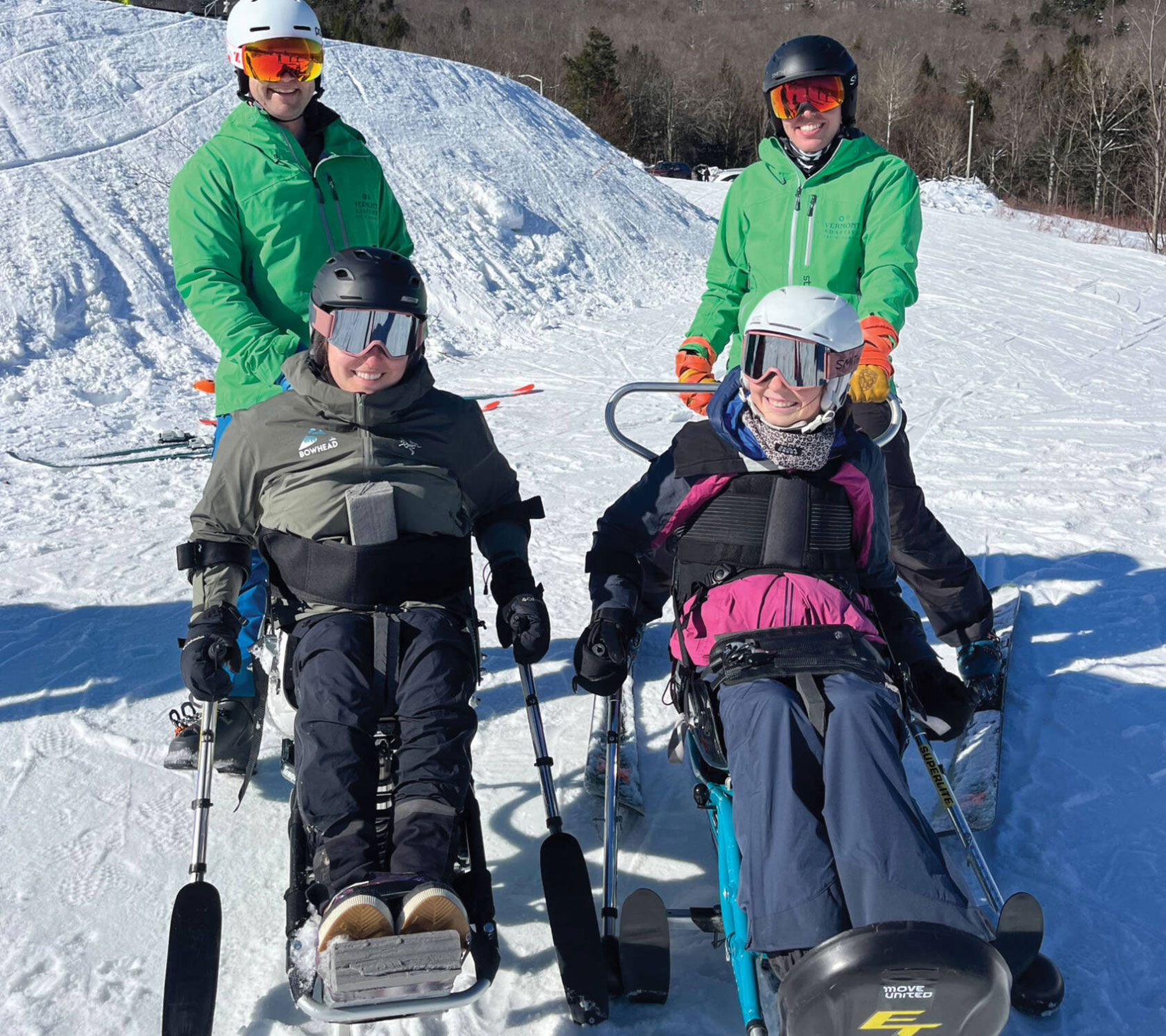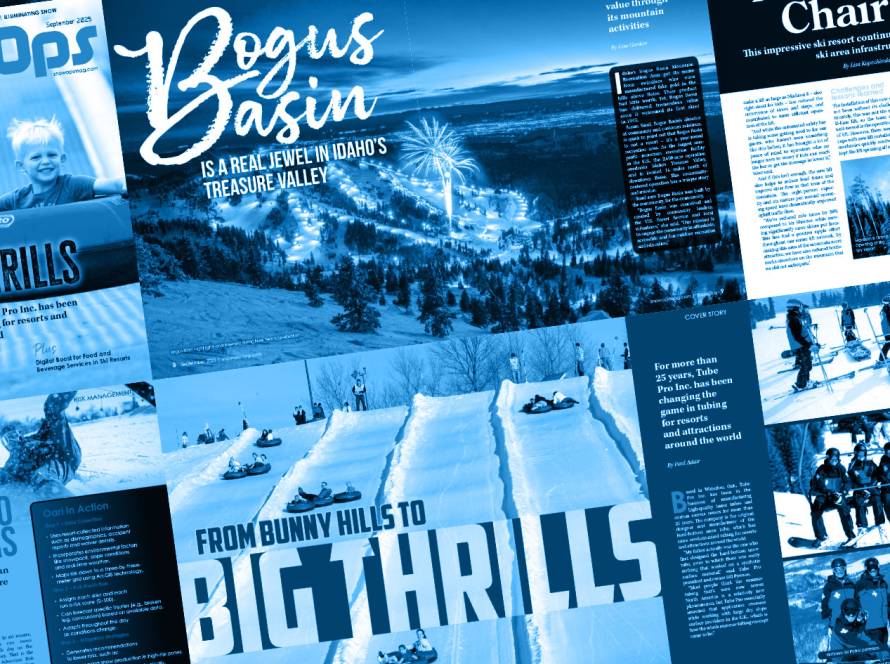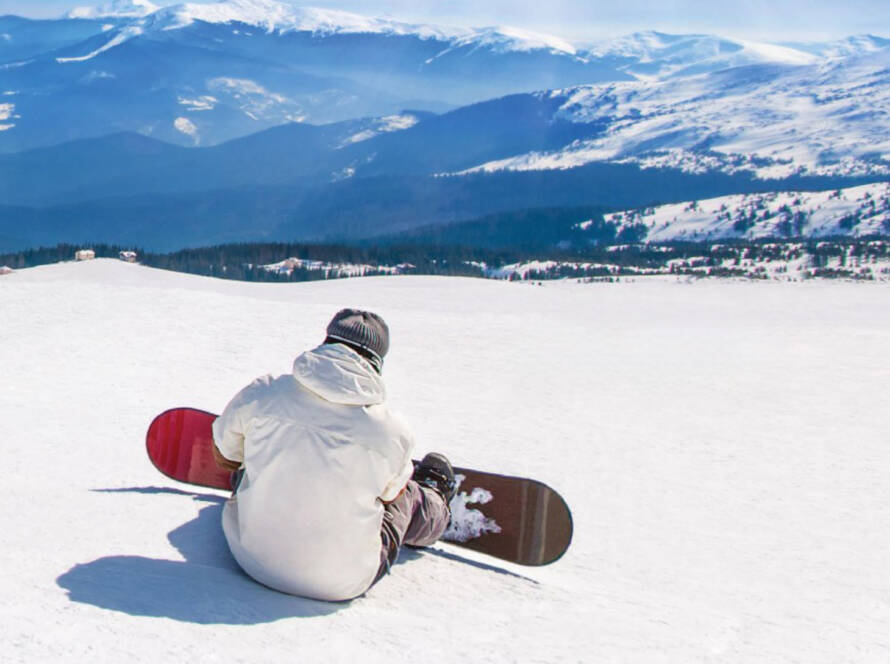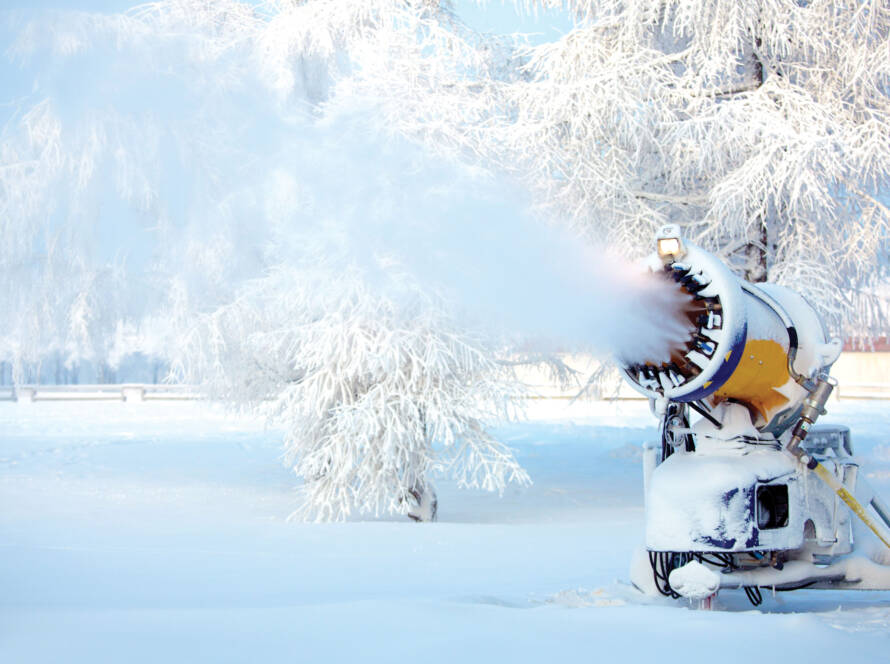Sports for every body is the slogan for Vermont Adaptive Ski and Sports, a nationally recognized non-profit organization that offers daily, year-round sports and recreational programs to people with disabilities.
Since 1987, Vermont Adaptive Ski and Sports has been committed to empowering individuals with disabilities. In addition to sports, programming options integrate environmental, holistic wellness and competitive training philosophies.
“We serve people with all types of disabilities, including physical, intellectual/neurodiverse, developmental and emotional/behavioral,” said Kim Jackson, director of communications and marketing at Vermont Adaptive Ski and Sports. “Vermont Adaptive never turns anyone away based on the ability to pay. We believe sports and recreation provide a physical, mental and social experience that is immeasurable in promoting self-confidence and independence in an individual.”
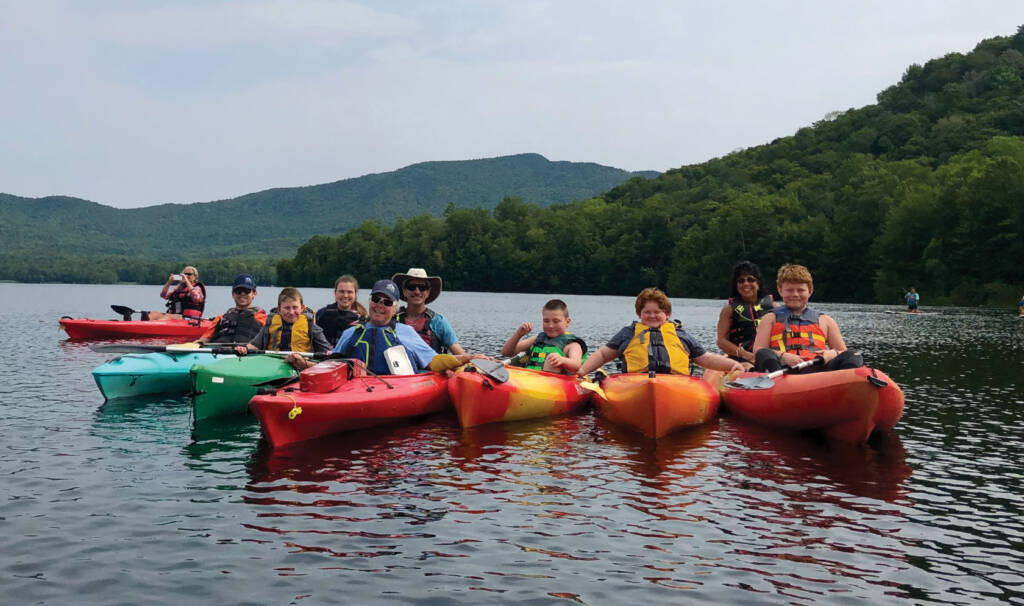
Promoting independence and equality through access and instruction to sports and recreational activities, Vermont Adaptive Ski and Sports offers programs throughout the year. Warm weather activities include canoeing, kayaking, paddle boating, sailing, adaptive mountain biking, cycling, hiking, wellness retreats, rock climbing and veterans’ programs. Winter sports at multiple locations across Vermont include skiing, snowboarding, snowshoeing, cross-country skiing, ice climbing and indoor rock climbing. Winter locations include adaptive sports facilities at Pico Mountain in Killington and Sugarbush Resort/Mount Ellen in Waitsfield.
“We also have programs at Bolton Valley Resort, Saskadena Six and other resorts on request,” said Jackson. “Our new 4,000 square foot facility, Murphy’s Annex at Vermont Adaptive, which opened its doors in December 2021, is specifically designed with the Vermont Adaptive participants, volunteers, staff and community in mind in order to bring year-round accessible sports and recreation to the entire Mad River Valley area.”
As part of Vermont Adaptive’s three-phase Permanent Homes Campaign, the facility at Sugarbush includes three floors for adaptive sports programming, retreats, veterans’ programs, workshops and wellness seminars, as well as:
- Access for all elevators for three floors at Mount Ellen at Sugarbush
- Year-round storage for expensive, state-of-the-art adaptive equipment
- Bag and gear storage space for staff, volunteers and guests
- Connecting pathways to existing and new spaces, and connection to Sugarbush’s main base lodge level for food, the fireplace, seating and retail
- Accessible entryways and exits for getting ready for and hitting the slopes
- Dedicated space for program check-in, accessible restrooms, program space, personal storage and changing space, volunteer break room and an educational lending library
- Specially designed soundproof sensory room for those who need a comfortable retreat away from noise and overstimulation
- Multi-purpose space for classroom activities, retreats, yoga workshops, wellness camps and other holistic activities
- Space to work on equipment with a mechanical equipment closet
The facility at Sugarbush/Mount Ellen is the second of three phases of Vermont Adaptive’s Permanent Homes Campaign. The first building, the Andrea Mead Lawrence Lodge at Pico Mountain, was built in 2013. The Pico facility was the first of its kind in Vermont. The third building will be located on the Burlington waterfront adjacent to the bike path; the specific site is still to be determined.
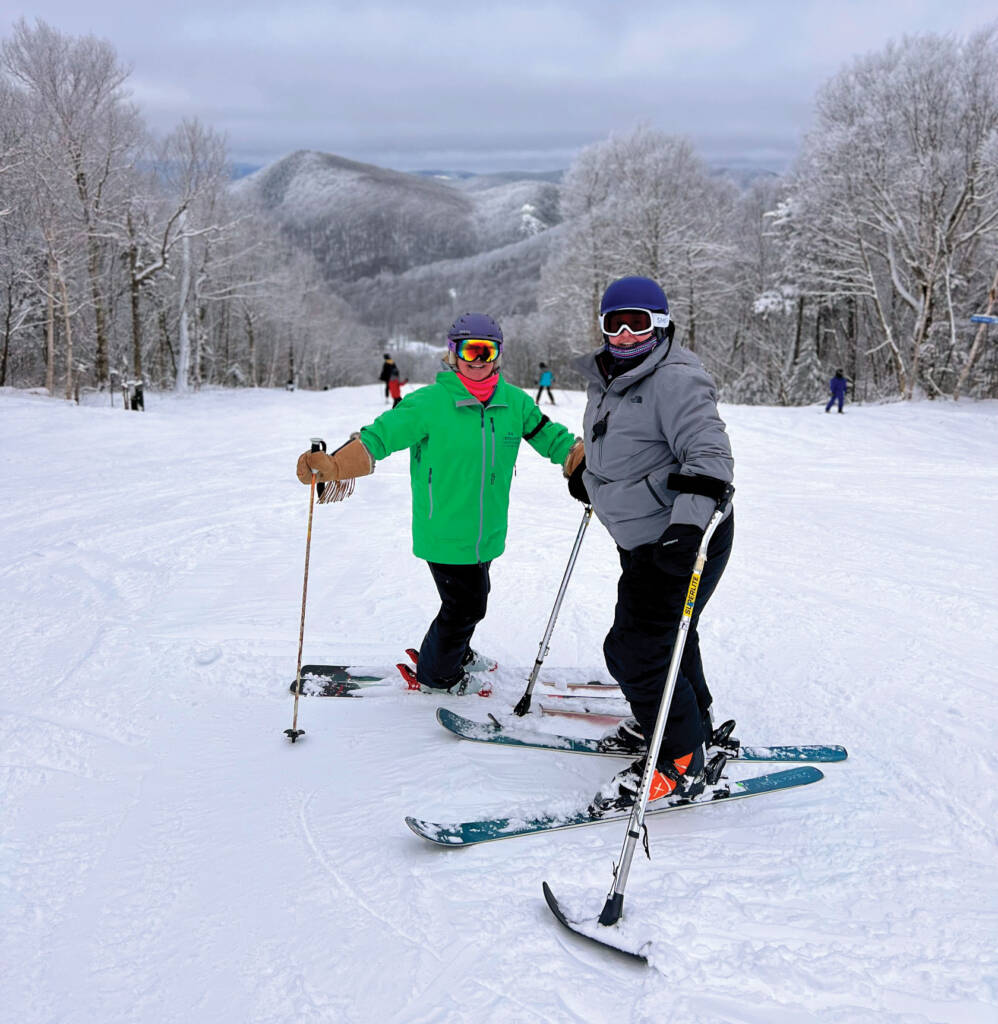
“As we continue to grow and serve more people, our borrowed space puts limits on the types of programs we offer and the number of people we can serve,” said Jackson. “Autonomous facilities allow Vermont Adaptive to expand the scope and scale of our operations to fulfill the growing demand for our programs statewide. With greater spaces comes greater capacity and greater autonomy to offer more experiences within our current programs and for what we dream of next. Our board and staff are highly mindful of how space will be utilized, and understand the opportunities these spaces bring to local communities and partners.”
The organization’s new permanent homes will provide immediate program expansion as well as centralized equipment storage and repair spaces. They also have an extensive fleet of adaptive equipment for all seasons.
We serve people with all types of disabilities including physical, intellectual/neurodiverse, developmental and emotional/behavioral.… We believe sports and recreation provide a physical, mental and social experience that is immeasurable in promoting self-confidence and independence in an individual.
Kim Jackson, Vermont Adaptive Ski and Sports
“In the winter, we have multiple types of equipment for skiing, from bi-skis and mono-skis to snow sliders, three-track and four-track equipment and more,” said Jackson. “For summer, we have a fleet of equipment that travels throughout the state, including canoes, kayaks, bikes and mountain bikes. Our mountain bike fleet includes 30 two-wheeled bikes and 10 adaptive mountain bikes. Each participant is assessed individually to determine what they want to do for an activity, what modifications might be needed – whether through instruction or adaptive equipment – and what skill level they have within that sport. We then tailor the adventure and experience from there.”
For snow resorts looking for ways to improve accessibility at their locations, Jackson cautions that it is not as simple as investing in new adaptive equipment. “A sit-ski may cost up to $7,000 and an adaptive mountain bike $15,000,” said Jackson. “A resort needs highly trained instructors to teach adaptive lessons. Some resorts do incorporate adaptive sports into their traditional ski schools. Others have separate organizations, like Vermont Adaptive, who they partner with to make the programs available.”
Feedback received by participants in the Vermont Adaptive Ski and Sports programs is positive and appreciative. “Participants and/or their caregivers are grateful that they can get out and enjoy outdoor recreation independently with assistance from adaptive equipment and instructors,” said Jackson. “Adaptive sports levels the playing field for many and [are] immeasurable in building self-confidence.”
